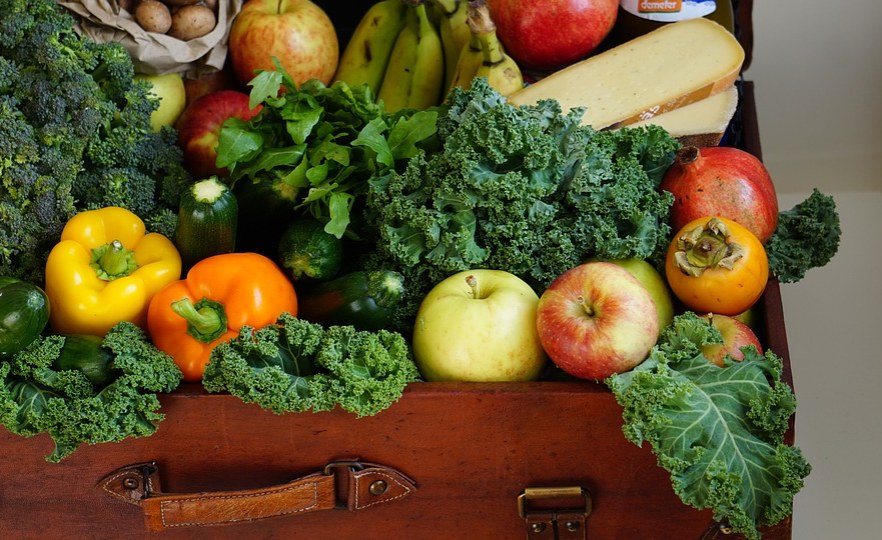Nigeria: Child Nutrition – Getting It Right Early

“The food you eat can be either the safest and most potent form of medicine or the slowest form of poison.” -Ann Wigmore
Malnutrition is one of the main drivers of non-communicable diseases (NCDs) and it can be linked to insufficient dietary intake and nutritional deficiencies during childhood and adolescence. According to the World Health Organization (WHO), 71% of global mortality such as cardiovascular disease (CVD), diabetes, cancers and respiratory disease is attributed to NCDs. Reducing the main risk factors for noncommunicable diseases – tobacco use, physical inactivity, unhealthy diet and harmful use of alcohol – is central to WHO’s work to prevent deaths from noncommunicable diseases.
Parents and Guardians as Agents of Change for Better Child Nutrition
While poor diet is a major risk factor for NCDs, tackling malnutrition by improving the quality of foods and feeding practices for children in the early years of life could help prevent NCDs.
When a child receives the right nutrition, not only does it support growth and development, but it can also initiate and reinforce healthy eating habits that contribute to overall health and well-being, which will last into the future. childhood and beyond. It starts when babies are born. The WHO recommendation is that breastfeeding should be initiated within the first hour of a baby’s birth and that exclusive breastfeeding continue for six months thereafter. Ifeyinwa Omesiete, a pediatric nutritionist with vast experience in infant nutrition, said many Nigerians have over the years made a habit of introducing highly processed cereals to their babies as young as 3 months old. . “This practice has, in the long term, led to several complications in the future, such as a weakened immune system, poor eating habits and disorders, obesity and a host of others,” she added.
Rebecca, a mother of two, said when she was pregnant with her first child, she decided to buy canned food for her baby. Nothing she was told during her prenatal classes changed her mind because she believed that babies who fed only breast milk were not as healthy as babies who were mostly fed canned baby food. But then she noticed that although her baby was eating well, her growth and development seemed slower than expected and she became concerned. So when her second baby arrived, Rebecca said she made sure to read a lot about how to feed her baby. Her second son is healthier than her first and she thinks it has to do with his diet. “Children don’t always want the best for them. It’s the responsibility of the parent or guardian to make sure they eat healthy meals and develop healthy eating habits. You make your better and hope these habits stay with them as they grow up.” and leave the house,” Rebecca added.
Eat what you grow and grow what you eat
According to the State of the World’s Children Report 2019, at least 1 in 3 children under the age of five are undernourished or overweight and nearly 2 in 3 children aged six months to two years do not receive foods that support their rapidly growing body and brain. . This puts them at risk of poor brain development, poor learning, weak immunity, increased infections, and in many cases, death. Omesiete said the consumption of highly processed and flavored grains is a major cause of poor dietary outcomes in children. “If drastic action is not taken immediately, there could be other health issues in children waiting to unfold,” she added.
The benefits of replacing unhealthy foods with healthy options like readily available and seasonal fruits and vegetables cannot be overstated. However, certain factors such as high cost may limit a parent or guardian’s ability to provide these healthy options. They might consider growing vegetable gardens to grow some of these fruits and vegetables. This was one of the recommendations of a Nigeria Health Watch policy dialogue titled “Our Nutrition Crisis: Considering Local Alternatives”. Nigerians have been encouraged to engage in backyard agriculture to “grow what they eat and eat what they grow” to combat malnutrition.
What more can we do?
It has been said that the long-term health and vitality of a nation depends on the well-being of its children. This is cause for concern, especially for a country like Nigeria, which faces the triple burden of overweight, anemia and stunting. If a child’s nutrition is deficient, it threatens their short- and long-term well-being, and they may grow up either stunted and wasted, or obese and overweight and susceptible to developing NCDs. This will in turn increase health care costs, reduce productivity and slow economic growth, which can perpetuate the cycle of poverty and ill health. According to the 2018 National Demographic and Health Survey, 37% of Nigerian children are stunted, 7% are wasted, 22% are underweight and 2% are overweight.
- Parents and guardians play a vital role in helping to initiate and enforce healthy habits in children from birth and the following should be done:
- Help children develop healthy eating habits by providing healthy options and limiting the consumption of sugary drinks and saturated fats.
- Make sure children get the required amount of daily nutrients in their diet to stay healthy.
- Encourage children to engage in physical activity. The Draft National Sports Industry Policy 2020 recommended an amendment to the Child Rights Act to incorporate provisions relating to sporting activity for children of all ages, regardless of ability , gender, culture and physical disadvantage.
Parents need to equip themselves with the right information to make sure the child is getting the nutrients they need at their age.
The recommended daily nutrient allowance (RDA) for schoolchildren varies by age of the child. However, it is recommended that children consume: 1200-1500 calories per day.